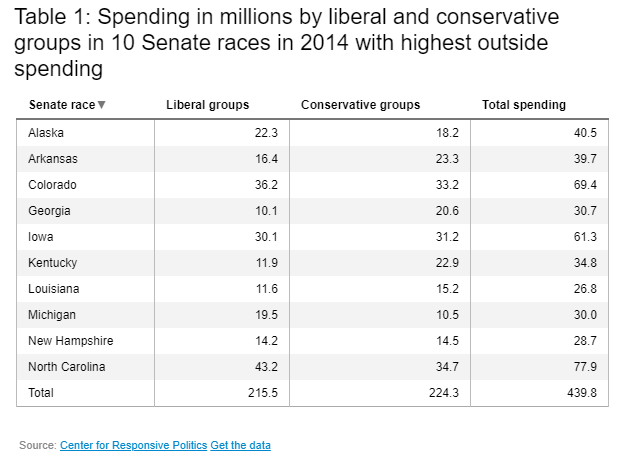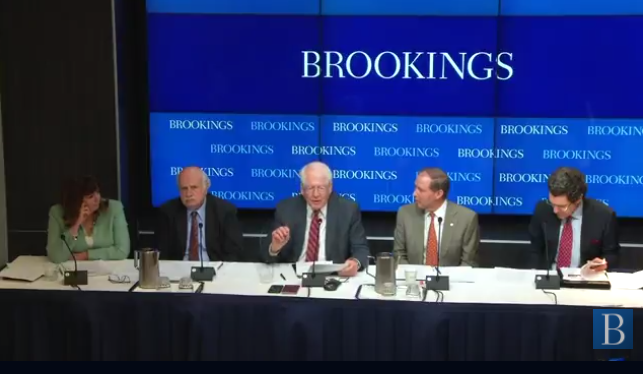In this article, Emory University professor Alan Abramowitz analyzes the impact of independent spending in the 2014 U.S. Senate elections. Republicans made major gains in the 2014 Senate elections, but the findings reported in Abramowitz’s article indicate that independent spending by conservative groups had little or nothing to do with those gains. The main reason why Republicans did very well in 2014 was that Democrats were defending far more seats than Republicans, and many of those seats were in states that normally favor Republicans based on recent presidential voting patterns. Democrats lost all seven of their seats in states carried by Mitt Romney in 2012, even though Democratic candidates enjoyed an advantage in independent spending in several of those races.
Abramowitz posits that the factors that limited the impact of independent spending in 2014 are very likely to be present in the 2016 elections as well. In a large majority of states, the winners of the presidential and Senate elections will be determined by the relative strength of the parties in the state. In the last four presidential elections, 40 of the 50 states have supported the same party in each contest, and there is little reason to expect anything different in 2016 – regardless of the amount of independent spending in a given race.














